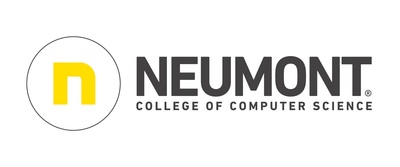

SALT LAKE CITY, Oct. 26, 2018 /PRNewswire/ -- Neumont College of Computer Science President Aaron Reed, Ed.D., presented Gaming Disorder: A Possible Piece of the Computer Science Retention Puzzle at the ninth annual International Conference on Computer Science Education (CSEIT): Innovation & Technology, held in Singapore on Monday, October 22.

Reed's innovative insights regarding digital gaming and student retention rates were delivered to an international audience of leaders in technology and computer education. "The world needs more computer science professionals," Reed explained. "And yet among STEM disciplines, computer science has the lowest overall student retention rate. Unhealthy gaming behavior seems to be a potential cause. And with the World Health Organization's recent announcement including 'gaming disorder' as a disease, the discussion couldn't be more timely."
At the CSEIT conference, Reed emphasized the realities of gaming disorder and related negative habits associated with playing video games in excess. Various participants at the conference indicated they see signs of gaming disorders among their students as well. Reed says that all institutions can do a better job of educating students about the real dangers of obsessive gaming. His research looked at data from Neumont, a small-computer science focused institution, where the gaming habits of incoming freshmen and upperclassmen were evaluated. Significant levels of video game playing were found among both groups, indicating a potential higher rate of gaming disorder among these students than those found in studies among the general young adult population. Given the data, there may be an increased correlation between tech-oriented computer science students and gaming disorders.
Reed says having this information is key for early intervention, which is a key focus for Neumont.
Neumont senior academic and student life coordinator John "JP" Peppinger, M.R.C., explained, "Everything that we do in student affairs and student services at Neumont has to do with helping students succeed."
Peppinger was also a contributor to the paper, Gaming Disorder: A Possible Piece of the Computer Science Retention Puzzle – Investigating the Rate of Excessive Gaming Among Computer Science Students, which Reed's CSEIT presentation was based.
"There are specific issues that our students are dealing with that, unlike larger institutions, we can take a personalized approach to," Peppigener says. "This is one of those key areas."
Peppinger is also the architect of a new program geared towards addressing obsessive gaming. "Game Changers"–structured similar to an online class –is set to launch at Neumont just before the holidays. Students spend time journaling their time spent on gaming and on gaming-related material, and learn about gaming companies' use of reinforcement methods against consumers.
"One of the main things Dr. Reed and I discovered in our research is that students don't realize how much time they are spending throughout the day on game related materials. You hear it often, but knowledge is power."
This press releases and more information about Neumont is available at www.neumont.edu.
SOURCE Neumont College of Computer Science
